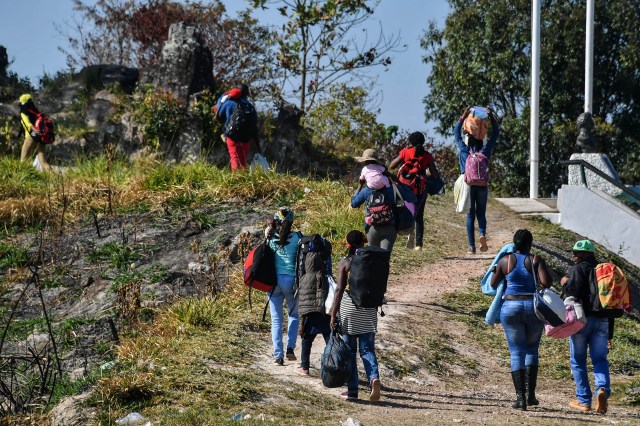
Michel Martin, host: Venezuela has largely fallen out of the headlines in the United States, but the crisis there continues. The country is facing what Human Rights Watch has called a severe humanitarian emergency, with millions unable to access basic nutrition and health care – a humiliating development in a country that was once one of the region’s most prosperous.
By WLRN
Sep 19, 2021
In an effort to ease the political crisis that is in large part responsible for the state of affairs, representatives of Venezuela’s President Nicolas Maduro and the country’s political opposition began a new round of talks this month. Now a new film out on HBO Max this week vividly describes how things got to this point – the roots of the crisis, the rise of Nicolas Maduro and efforts by the opposition to remove him from power. “A La Calle” – to the streets in English – was filmed over the course of three years and gives an intimate look at how chronic food shortages, inflation and political repression affects Venezuelans every day.
Nelson G. Navarrete: Thank you for having me on.
Martin: And I’m also joined by Leopoldo Lopez, who is one of the opposition leaders featured in the film. He will be familiar to anybody who has been following the situation in Venezuela over the years. Mr. Lopez, welcome to you as well.
Leopoldo López: Thank you very much. It’s an honor to be on this program. I’m a frequent listener.
Martin: Oh, well, thank you for that. But, you know, as the film shows, you’ve paid a heavy price for being a leader of the Venezuelan opposition, starting in 2008, when former President Hugo Chavez tried to ban you from running for public office. You were accused by his successor, the current president, Nicolas Maduro, of inciting violence. You were forced to spend some years in prison and then under house arrest because of that charge. Now you and your family are living in exile in Spain. But again, as we see in the film, you keep at it. So I just wanted to ask, like, why are you so determined to keep at this?
López: Well, like millions of Venezuelans, we have been taken to the limits – to the limits where you have to decide whether you put your own liberty for the liberty of the country. And we have been faced to that challenge, and there has been many political prisoners who have also given their freedom in order to fight for a free Venezuela.
Martin: Well, one of the things that the film does is show how Venezuelans who are trying to express themselves politically have been treated. I mean, it’s some of the more, you know, disturbing footage in the film. So, Nelson, I’m going to turn to you on that. First, let’s just talk about where the film starts, at a massive protest march in 2017. There’s a man holding a Venezuelan flag. He’s giving an interview about how peaceful protests are met with violence. And then literally, while he’s talking, the crowd comes under attack. I’m just going to play a short clip here.
Martin: Nelson, I’m just wondering, how did you pull this off? I mean, I’m not trying to take away from the substance of what you’ve accomplished and this – the message. But how did you pull this off, given the fact that there seemed to be great determination on the part of the government to break up these kinds of gatherings? I mean, were your cameras visible? Or how did you do it?
Navarrete: Well, we assembled three units to be in different locations. So if there was an election, we were there with three units. If there was a protest, we were there with three units. So, you know, all the footage that we have, we can make another documentary because we decided to cover everything, you know?
Martin: Well, yeah. You had – the people, you focus on, the sanitation worker, and you show how hard it is for him to just get food for his family. There’s a doctor who can’t find medicine she needs. But then we also hear from some of the most deprived Venezuelans who say that they continue to support Maduro because of the social programs associated with him and his predecessor, Hugo Chávez. So, Mr. López, how do you explain the fact that people who are suffering so much continue to support the current regime?
…
Read More: WLRN – ‘A la Calle’ Co-Director: Stories of Venezuela’s humanitarian crisis are universal
…

